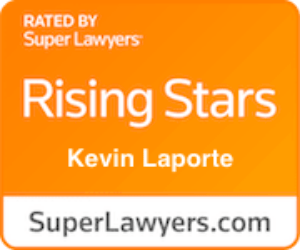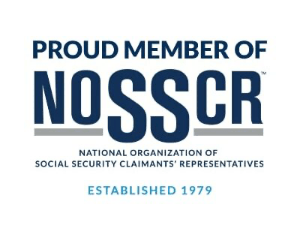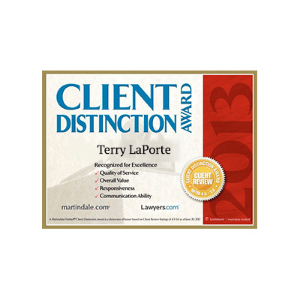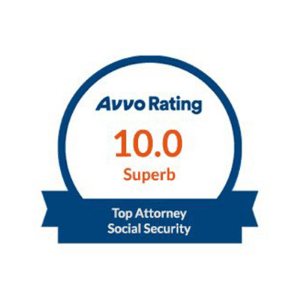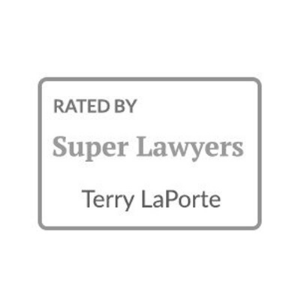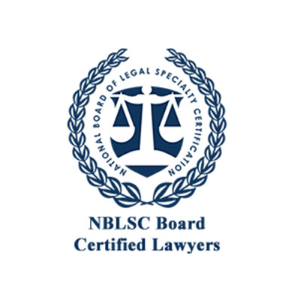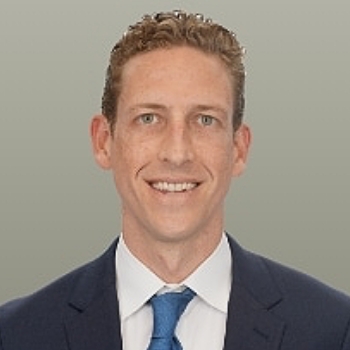The SSDI Podcast - EP5

- AUDIO TRANSCRIPT
Speaker 1 0:00
All right, get ready, because today we’re taking a deep dive into something that could be a real game changer for some of you, presumptive disability and how it can fast track you to getting SSI benefits. We’re talking about a program that not only offers, you know, financial relief, right, but also provides some much needed peace of mind for during really, really challenging times. Absolutely,
Speaker 2 0:25
and it’s fascinating how the SSA recognizes just how urgent these severe conditions are. Yeah, they’ve basically streamlined the system allowing you to receive financial support while you’re waiting for a final decision on your full SSI claim? Yeah, they acknowledge that in these situations, waiting months for a decision just isn’t an option. No, not at all. You just can’t do it. And
Speaker 1 0:51
we’re talking about conditions so debilitating, right? They almost always meet the SSAS definition of disability, exactly. But I bet there are some conditions on this list that would surprise people conditions they wouldn’t necessarily associate with automatic qualification. Absolutely.
Speaker 2 1:05
For example, you might be surprised to learn that end stage renal disease, oh wow, requiring regular dialysis qualifies. Wow. It’s grueling, yeah, and the SSA acknowledges the impact that has, oh, yeah, on your ability to function, let alone work, right?
Speaker 1 1:24
And it’s not just about those physical limitations, right? Yeah, the emotional and psychological toll these conditions take for sure, can be immense. Precisely.
Speaker 2 1:33
Take ALS, for instance, okay, it’s a progressive neurodegenerative disease that gradually robs you of your ability to control your muscles. Wow, imagine the fear and uncertainty. Oh, my God, that comes with that diagnosis. Yeah, presumptive disability steps in to alleviate some of that burden, yeah, by ensuring you have that financial support. Yes, incredible during a very difficult time. So we’re
Speaker 1 1:56
talking about a program that provides both financial and emotional support, yeah, a true lifeline for those facing these incredibly challenging situations, right? But let’s say you’re listening and thinking, Wait a minute, this might apply to me. What’s the next step?
Unknown Speaker 2:11
Well, how
Unknown Speaker 2:12
do you actually navigate this process and apply for presumptive disability? Well, the
Speaker 2 2:16
first step is making sure you meet the basic eligibility requirements for SSI, okay, meaning limited income and resources. Got it. Then it’s all about documentation. Okay, gather your medical records, your work history, proof of income and assets, okay, anything that paints a clear picture of your situation and the severity of your condition.
Speaker 1 2:38
Okay, so you’re building a comprehensive file. Yes, that shows your need for these benefits. Exactly, is there anything people should keep in mind to make this process a little smoother? Absolutely,
Speaker 2 2:49
Organization is key. Okay, keep those files meticulously organized. Make copies of everything. Got it. And for the love of all that is good, yeah, keep the original safe. You don’t want to be scrambling for lost documents in the middle of this process. That’s
Speaker 1 3:05
a good point. Nope. So you gather your amount of paperwork, you send it off to the SSA right? Then what? Well,
Speaker 2 3:11
then your application goes through an initial review at your local SSA office, all right, then it’s on to Disability Determination Services for a full medical review, where they really dig into your case and assess the extent of your impairment.
Speaker 1 3:25
Okay, so there’s a thorough review process to make sure only those who truly qualify right receive these benefits. Yes, but how long does all of this take? Because if you’re facing a debilitating condition, sure Time is of the essence.
Speaker 2 3:39
This is where presumptive disability really shines. Okay? If you’re approved, your payments begin the month you’re deemed presumptively disabled, wow. And they continue for six months. Okay, so even while your full application is under review, yeah, you’re getting that crucial financial support
Speaker 1 3:57
six months that could make a world of difference, for sure, for someone struggling to make ends meet, absolutely. But what happens after that six month period, right? Does the support just vanish? That’s where
Speaker 2 4:10
it gets interesting, and why understanding the nuances of this program is so important. Okay, there are two possible scenarios after those six months, okay? And we’ll dive into those
Speaker 1 4:19
right after all, right, folks, we’re gonna take a quick pause here, but don’t go anywhere. We’ll be right back. We’ll be right back to unpack those two possible outcomes and what they mean for your benefits. Stay tuned. Stay tuned. Welcome back. Before the break, we were on the edge of our seats about to discover what happens after those six months of presumptive disability payments, right?
Speaker 2 4:41
So let’s break down those two scenarios. The first and obviously the best case scenario, is that the SSA reviews your full application, okay, carefully considers all the evidence and ultimately approves your claim for full SSI benefits. Oh, that’s
Speaker 1 4:59
good. To be a huge relief. It is just knowing that you have that ongoing support absolutely to help you navigate the challenges of your condition. It means you
Speaker 2 5:09
can focus on your health and well being, yeah, without the added stress for sure of financial insecurity,
Speaker 1 5:14
of course. But there’s also the possibility that the SSA denies your claim right, and if that happens, the presumptive disability payments stop, correct? I imagine that can feel like a setback, especially after having that financial safety net for six months. You can but here’s where that key feature of presumptive disability kicks in. Yeah, you don’t have to repay those benefits
Speaker 2 5:35
Exactly. It’s a no risk scenario. Wow, those six months of payments were designed to help you through a critical period, right? And regardless of the final decision, yeah, you don’t have to worry about incurring debt, that’s
Speaker 1 5:47
a crucial point, yeah, especially for people already facing so much uncertainty. But what happens if your claim is denied? What are your options? You don’t just have to accept that decision. Do you absolutely
Speaker 2 6:00
not. You have the right to appeal the decision, okay, and continue advocating for yourself. All
Speaker 1 6:06
right? So you can request a reconsideration, which means another SSA representative will take a fresh look at your case
Speaker 2 6:13
exactly, and if the reconsideration doesn’t go your way, okay, you can request a hearing. Okay, with an administrative law judge got it, and
Speaker 1 6:20
this is where having a lawyer, yes, specializing in disability law, yes, can be a true game changer. For sure, we’ve talked about touched on the importance of legal assistance right throughout this deep dive. Why is it so crucial, sure, in this specific stage of the process, think of
Speaker 2 6:39
a disability lawyer as your expert guide, okay, through the often complex, yeah and confusing world of the SSA, okay, they can help you gather additional evidence, anticipate the judge’s questions, okay, and present your case in a clear and compelling way. It’s almost
Speaker 1 6:58
like having a translator, yeah, who can bridge that gap right between the technical language of the SSA and the reality of your situation? That’s
Speaker 2 7:07
a great analogy. And remember, you’re not expected to navigate this complex system alone, right?
Speaker 1 7:11
So even if you hit a roadblock, it’s not the end of the journey. Nope. There are avenues to pursue, resources to help you fight for the support you deserve Absolutely. But let’s shift here’s a bit. Okay, we’ve talked a lot about the process, but I want to get into the specifics of those qualifying conditions, sure, for presumptive disability. Okay,
Speaker 2 7:31
let’s dive in. Okay, we already mentioned end stage renal disease and ALS another condition you might not expect. Oh, is amputation of a leg at the
Speaker 1 7:40
hip. Wow, that’s a, yeah, that’s a powerful example. It is. It immediately highlights the impact a condition can have, for sure, on your ability to work and live a normal life. Absolutely.
Speaker 2 7:53
And it’s not just the physical limitations, but the potential complication, right? The pain, the emotional toll all of these factors contribute to the overall severity.
Speaker 1 8:03
It’s a stark reminder that disability takes many forms, yes, and each case needs to be evaluated on its individual merits. For sure, what are some other conditions?
Speaker 2 8:15
Well, certain spinal cord injuries qualify Okay, specifically, those that result in an inability to walk without assistance for more than two weeks. Wow. Imagine that sudden change in your life, the challenges you’d face in doing even the simplest tasks. It’s
Speaker 1 8:32
about understanding the ripple effect of these conditions, how they impact every aspect of your life, including your ability to earn a living absolutely
Speaker 2 8:40
and there are conditions that specifically affect children, like cerebral palsy, muscular dystrophy and Down syndrome. Okay, these conditions can manifest in a variety of ways, right? But when they cause Mark difficulty in walking, speaking or coordinating movements, they meet the criteria. So it’s not just about
Speaker 1 8:59
having a diagnosis, it’s about the level of impairment. It causes precisely the
Speaker 2 9:03
severity of the condition, yeah, and its impact on your daily life are key considerations. This
Speaker 1 9:09
list of qualifying conditions is really eye opening. It is. It demonstrates the breadth of the program and the recognition that disability isn’t always visible, right or easily defined Absolutely,
Speaker 2 9:21
there’s also symptomatic HIV infection, okay, or AIDS, okay. While treatments have significantly improved the lives of people living with HIV, right, the virus can still cause a range of debilitating symptoms, especially if it progresses to AIDS. So
Speaker 1 9:36
even with advances in medicine, right, certain conditions can still have a profound impact on your health and ability to work Absolutely. What other conditions round out this list? There are a few
Speaker 2 9:46
more that paint a clear picture of severity. Okay, a stroke that occurred more than three months ago and still causes difficulty walking or using a hand or arm. Wow. And a terminal illness with a life expectancy of six months or less.
Speaker 1 9:59
Yes, these are conditions where the need for immediate support, oh, yeah, undeniable. With
Speaker 2 10:04
a terminal illness, for instance, the focus shifts to providing financial peace of mind, of course, during those precious final months, right? It’s about ensuring dignity and comfort. Yeah, in the face of extraordinary circumstances, it’s
Speaker 1 10:19
really a testament to the compassionate spirit behind the presumptive disability program, it is. But are there any other conditions we haven’t covered yet? Yes, there
Unknown Speaker 10:27
are actually a few more. Okay, let’s delve
Speaker 1 10:29
into those and any other surprising details about presumptive disability. Right after the break, stay with us,
Speaker 2 10:35
and we’re back for the final part of our deep dive into presumptive disability. Before the break, we were going over that list of qualifying conditions, yeah, the ones the SSA considers so severe, they automatically qualify you for this program, exactly. Okay. What else is on this list that might surprise people? Well,
Speaker 1 10:53
there’s blindness, okay, not just total blindness, but also statutory blindness, okay, which means your vision is severely limited, okay, even with corrective lenses.
Speaker 2 11:04
It’s a powerful example, because it underscores that disability isn’t always immediately obvious.
Speaker 1 11:09
That’s a great point. It challenges our assumptions about what disability looks like, and reminds us that it can affect people right in div use and often unseen ways, absolutely.
Speaker 2 11:19
And then there are conditions like deafness, both total deafness, where there’s no hearing at all, wow, and also being born deaf, it really highlights the impact on someone’s ability to communicate, yeah, and navigate the world around them. These
Speaker 1 11:34
examples are really driving home the point that this program covers a wide range of conditions, all of which share that common thread of severity, yes, and a significant impact on someone’s life,
Speaker 2 11:46
exactly. And it’s not just about physical conditions either. Okay? We also have intellectual disability on the list, okay, specifically when it’s documented before age 22 okay, and continues to affect someone’s ability to function independently.
Speaker 1 11:59
So we’re looking at a holistic picture, considering the full spectrum of someone’s capabilities and how their condition affects their daily life. Precisely,
Speaker 2 12:09
the goal is to ensure that people with a wide range of disabilities have access to the support they need. Yeah, regardless of the specific nature of their condition.
Speaker 1 12:19
It’s really remarkable how this program considers those nuances and strives to meet the diverse needs of those facing these challenging situations. But we focused a lot on the what of presumptive disability, right? Let’s talk about the how sure. What can you tell us about the application process? Well,
Speaker 2 12:37
as we touched on earlier, it all starts with gathering those crucial documents, right? Think of it as assembling the pieces of a puzzle. Okay, that will paint a clear picture of your situation.
Speaker 1 12:49
So medical records are essential, right, absolutely detailed documentation of your diagnosis, treatment history, and the severity of your condition Exactly.
Speaker 2 12:58
And don’t underestimate the importance of those doctor’s notes, okay, specific details about your limitations, your ability to perform daily tasks, and the overall impact of your condition on your life, can be incredibly valuable in supporting your claim. It’s
Speaker 1 13:16
about going beyond just the diagnosis code, right, and really demonstrating how your condition translates into real world challenges. Exactly,
Speaker 2 13:24
okay? And then there’s your work history, okay, particularly if you had to stop working due to your condition, pay stubs, letters from employers, anything that confirms your inability to work is crucial.
Speaker 1 13:38
It’s about proving that your condition isn’t just a theoretical concept, right, but a tangible barrier to earning a living, and
Speaker 2 13:45
because we’re dealing with SSI, right, which is needs based, you’ll need documentation of your income and assets, okay, to show you meet those financial eligibility requirements. Okay,
Speaker 1 13:57
so we’ve got medical records, yeah, work history and proof of income and assets, right? What’s the best way to organize all this information? I imagine it can be a bit overwhelming. That’s
Speaker 2 14:08
where a little organization goes a long way. Create a system for keeping track of everything. Got it, whether it’s color coded folders, spreadsheets, okay, or a trusty binder, yeah, make copies of everything, okay? And keep those originals in a safe place, right? You don’t want to lose those crucial documents.
Speaker 1 14:26
Good point. So you’ve got your perfectly organized files, you’ve submitted your application and you’re approved for presumptive disability. Okay, those payments start rolling in, providing that much needed relief, yeah, but we’ve also talked about how this is a temporary status, correct? What happens after those six months are up?
Speaker 2 14:45
That’s the moment of truth. Okay? The SSA has completed their review of your full application, and there are two possible outcomes, okay? In the best case scenario, your claim is approved, okay? And you transition. Seamlessly into receiving full SSI benefits. That’s the
Speaker 1 15:03
outcome we’re all rooting for. Absolutely. It means you have that ongoing support, right? And you can focus on managing your condition without the added pressure of financial insecurity. But the
Speaker 2 15:15
other possibility is that your claim is denied. Okay? And while this can be disappointing. Yeah, it’s important to remember you don’t have to repay those six months of presumptive disability benefits.
Speaker 1 15:26
It’s a crucial safety net that helps you weather the storm while you wait for a decision. Exactly, okay? So even if your claim is denied, it’s not the end of the road. You have the right to appeal that decision and continue advocating for yourself, right? Okay, let’s talk about appeals. Sure. What does that process look like? It
Speaker 2 15:43
starts with requesting a reconsideration, okay, where a different SSA representative reviews your case with fresh eyes,
Speaker 1 15:52
so it’s a chance to have your case looked at from a new perspective, yes, potentially catching something that was missed the first time around,
Speaker 2 15:58
exactly, and if the reconsideration doesn’t lead to a favorable outcome. Okay, you can request a hearing with an administrative law judge. Okay, this is where having a lawyer specializing in disability law can be absolutely invaluable. We’ve
Speaker 1 16:11
mentioned the power of legal assistance throughout this deep dive, right? Why is it particularly important during the appeals process?
Speaker 2 16:20
The appeals process can be complex, yeah, and intimidating. A Disability lawyer is your advocate, okay? Your guide through this often confusing system. Got it they know the ins and outs of disability law can anticipate potential roadblocks and help you present your case in the most compelling way possible. It’s
Speaker 1 16:41
like having an expert translator who can bridge the gap right between the technicalities of the SSA and the realities of your situation exactly. And
Speaker 2 16:49
remember that statistic we talked about earlier? Yeah, people who hire a lawyer almost triple their chances of success with disability claims.
Speaker 1 16:57
That’s a powerful reminder that you don’t have to go through this process alone. Nope, there are experts who can help you navigate this complex system and fight for the support you deserve.
Speaker 2 17:06
And it’s not just about the legal expertise, right? A good Disability Lawyer also provides emotional support, helping you stay focused and motivated throughout this challenging journey. So
Speaker 1 17:17
it’s about having someone in your corner who understands the nuances of disability law, right and can guide you with both knowledge and compassion precisely,
Speaker 2 17:26
it’s about empowering yourself, yeah, with the right resources and support to navigate this system successfully. Well, we’ve
Speaker 1 17:33
covered a lot of ground in this deep dive into presumptive disability. We’ve explored the why behind this vital program, the what of those often surprising qualifying conditions and the how of navigating the application and appeals process,
Speaker 2 17:51
and we’ve emphasized that crucial takeaway, yeah, you don’t have to face this alone, whether it’s seeking guidance from the SSA, connecting with a disability lawyer or finding support groups, there are resources available to help you every step of the way. So
Speaker 1 18:06
for anyone out there who’s facing a severe condition, struggling financially, feeling lost or overwhelmed, remember presumptive disability could be that lifeline you need. It could it’s a program designed to provide support during those critical moments. Yeah, and understanding the ins and outs of this program could be the key absolutely to accessing the benefits you deserve. Knowledge
Speaker 2 18:29
is power, right, especially when it comes to navigating complex systems like the SSA, yeah. So take what you’ve learned today. Do your research, ask questions, yeah, and don’t be afraid to advocate for yourself.
Speaker 1 18:42
That’s a fantastic note to end on. It is thank you for joining us on this deep dive into presumptive disability. My pleasure, we’ll be back soon with another fascinating topic. So stay tuned. You.
- Disclaimer: this podcast has been generated with the help of an Artificial Intelligence and is based on blog posts written by LaPorte Law Firm Disability expert attorneys. You can read all our latest blog posts here.

Helping clients win their cases for over 40 years
LaPorte Law Firm has been representing Social Security Disability claimants in the Bay Area since 1982. Since starting his practice specializing in Social Security Disability claims, Terry LaPorte has successfully represented thousands of disability claimants, with LaPorte Law Firm opening offices in San Jose, Oakland, San Francisco, Santa Cruz, Burlingame, Sacramento, and Hawaii.
We are a full-service law firm providing expert legal representation at all stages of the Social Security Disability benefits process. As a local law firm mainly servicing the Bay Area, we are familiar with the administrative judges at the San Jose, San Francisco, and Oakland hearing offices, as well as the staff at local Social Security field and hearing offices. In addition, with this being a federal area of law, we also represent clients all over the country.
Meet our attorneys
Our team of ethical, professional, and dedicated lawyers are the cornerstone of our success.

Terry LaPorte
Attorney
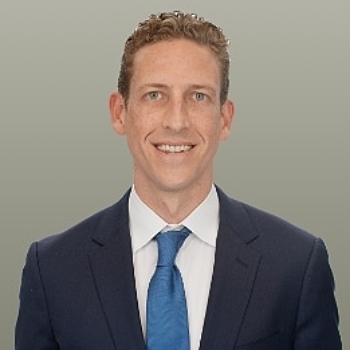
Kevin LaPorte
Attorney
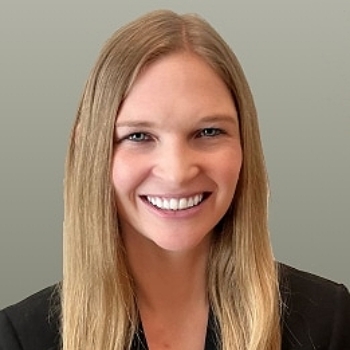
Kelsey LaPorte
Attorney

Maria Miranda-Hammon
Legal Representative
How it works:
- Complete the form so we can learn more about your situation.
- We will reach out within 48 hours to schedule your free, no-obligation consultation with an attorney.
- If your case can be pursued, we’ll start working on it.
- We only get paid if your case is approved.
How we can help:
- Free case evaluation by an attorney
- Social Security Disability Insurance application
- Social Security Disability Insurance appeal
- Disability hearing preparation
NO FEES UNLESS YOU WIN.
Award-winning service
Equipped with years of experience and thousands of successful cases, LaPorte Law Firm is the leading disability attorney in the Bay Area, and we have the awards and certifications to prove it.
